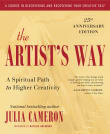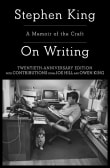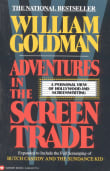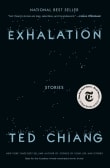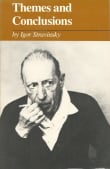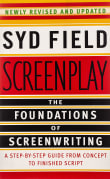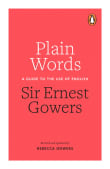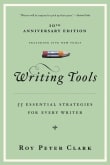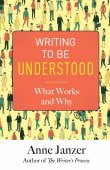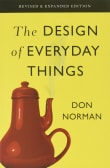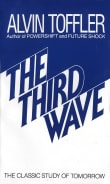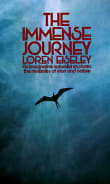The Elements of Style
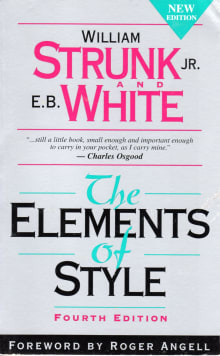
Book description
You know the authors' names. You recognize the title. You've probably used this book yourself. This is The Elements of Style, the classic style manual, now in a fourth edition. A new Foreword by Roger Angell reminds readers that the advice of Strunk & White is as valuable today as…
- Coming soon!
Why read it?
7 authors picked The Elements of Style as one of their favorite books. Why do they recommend it?

This book is old, like early 1900s. It was first drafted by William Strunk, Jr., who distributed a version to his students at Columbia University in 1919. E.B. White (author of Charlotte’s Web) modernized it in the ’50s. It went on to sell millions of copies and become one of the most influential guides to English. Why the history lesson? Because it’s remarkable how relevant it remains in 2022. It can feel dusty and literary, but it offers nuggets of wisdom like “omit needless words” that influence writers like me today. I shamelessly ripped off the concept of…
From Randall's list on learning how to write effectively.

If you ever took a college English composition class, chances are you read this book. Why did you have to read it? Because it’s that good. Some things change, but crisp, clear composition remains relevant. “Omit needless words.” “Write in active voice.” Pithy statements like these still echo in the chambers of the minds of thousands of writers. Heed those voices!
From Robert's list on for aspiring novelists.

As a writer, I obviously need to hone my craft, and this book is the granddaddy of all writing guides. (The first edition came out in 1918!) But even engineers who don’t moonlight as authors need to communicate clearly. When we interviewed engineering candidates at one of my companies, the key question they had to answer was “go to the whiteboard and describe some technical project.” We didn’t care what the project was, just how well they could communicate. Written communication is a skill that will enhance the career of anyone in any field, and this book will help. I…
From David's list on to give engineers new perspectives.
If you love The Elements of Style...

Did you ever read a great piece of writing, and ask yourself how the writer managed to make it sound so good? If so, Strunk & White are the Morpheus and Trinity who will show you the code behind the Matrix.
Chances are, you’ll already know—or at least recognize—a lot of the advice here. But you’ve still never seen it expressed so crisply and concisely. From basic elements of grammar, word order, and punctuation through to immutable dos and don’ts of writing style, there’s timeless advice on every page.
Cut the authors some slack for writing 70+ years ago and…
From Tom's list on to make your writing crystal clear.

This writing style manual is a rigorous guide to good writing. Revised and expanded many times since it was first written in 1918, it has been criticised for its blunt prescriptivism, but I love it. The main message to take from it, I think, is the importance of cleanliness, accuracy, and brevity. Citing numerous good/bad comparisons, it helps us to identify structural imbalance, verbosity, and weakness in our sentences. It proclaims that a sentence should contain no unnecessary words, a paragraph no unnecessary sentences. This reminds us of the larger principles, that everything should be there to service the story;…
From Graham's list on storytelling and what makes great stories great.

Yes, the famous Strunk & White style manual that every English teacher either loves or loves to hate. But before you gloss over and skip to the next recommendation, hear me out: Read this book again, not as a manual on writing style and grammar, but as a guide to living a fulfilling, minimalistic, and positive life. I won’t spoil the fun by divulging my interpretations, but I will whet your appetite with the most famous of all Elements: omit needless words.
From Mike's list on for people who can’t read five books on the same topic.

When I was a kid we used to make jokes about this book. We called it “The Elephants of Style” and considered that the height of hilarity. Yet within its thin frame lies more great advice on how to write than ten other books ten times its size. From “the Elephants” I learned to avoid clichés like the plague, to write with precision and candor, and that “writing in the passive voice should never be done by me.” To this day (more than half a century later) I keep a copy close at hand, to resolve any doubts I might…
From John's list on the art of writing.
Want books like The Elements of Style?
Our community of 12,000+ authors has personally recommended 100 books like The Elements of Style.

